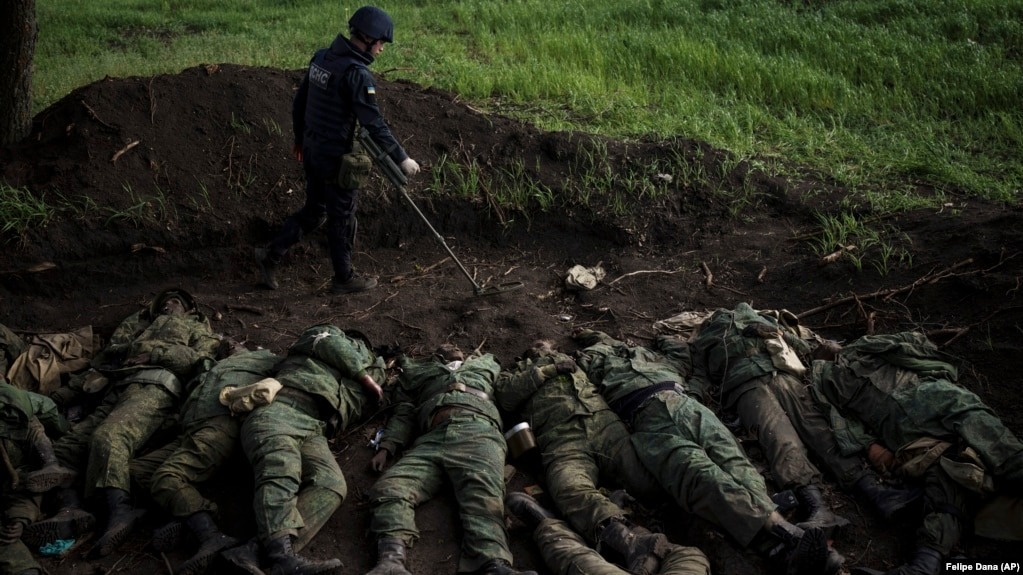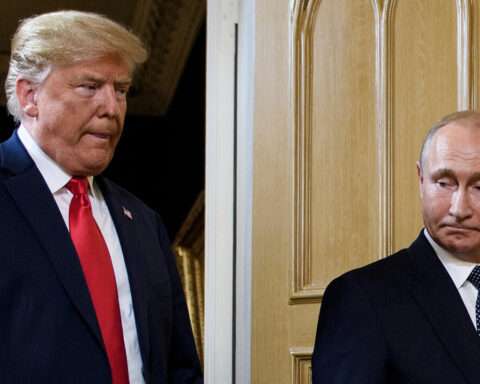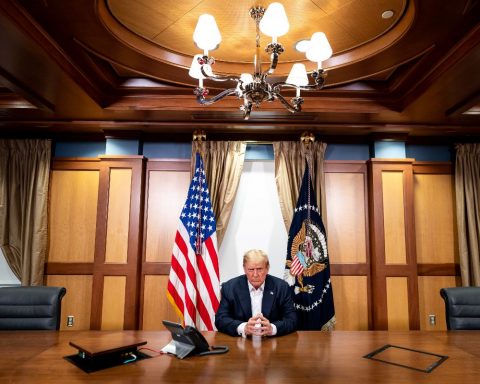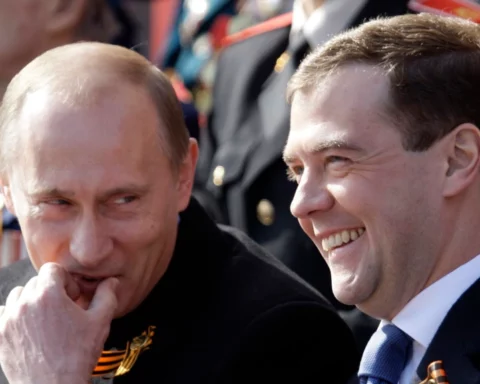Ukraine said its military made some progress gradually pushing Russian forces away from the city of Kharkiv as fighting in the east and south of the country continues and the United States warned that Russian President Vladimir Putin is preparing for a long war.
Ukraine’s natural-gas pipeline operator said that beginning May 11 it would stop Russian shipments through its key Novopskov hub in the east in an area controlled by Moscow-backed separatists.
It said the hub handles about one-third of Russian gas passing through Ukraine to Western Europe. Russia’s state-owned natural gas giant Gazprom put the figure at about one-quarter.
President Volodymyr Zelenskiy said on May 10 that Ukrainian successes pushed Russian forces out of four villages around Kharkiv, which has been under bombardment since the war began.
“But I also want to urge all our people…not to spread excessive emotions. We should not create an atmosphere of excessive moral pressure, where victories are expected weekly and even daily,” Zelenskiy said in a video address.
In the strategic southern port of Mariupol, Russian forces continued their assault on the Azovstal steel plant where the city’s last defenders are holed up. An aide to the mayor said at least 100 civilians were still trapped there.
Russia is trying to reinforce exposed troops on Snake Island, which could enable it to dominate the northwestern Black Sea with strategic air-defense and coastal defense cruise missiles, the British Ministry of Defense said in a regular bulletin.
“Ukraine has successfully struck” Russian air defenses and resupply lines in the Black Sea with drones, the bulletin noted, leaving Russian resupply lines exposed after the Russian Navy retreated to Crimea following what the United States says was the sinking of the Moskva missile cruiser by Ukraine last month. Ukraine has not confirmed the attack.
Russian missile strikes also hit the southern port of Odesa in an apparent effort to disrupt supply lines.https://www.rferl.org/a/russian-advances-donbas-eastern-ukraine/692602/1/31781298.html
In Washington, the U.S. House of Representatives approved more than $40 billion more aid for Ukraine as Congress races to keep military aid flowing and support the government in Kyiv. The measure now goes for Senate approval before President Joe Biden can sign it into law.
The U.S. Director of National Intelligence, Avril Haines, meanwhile, told a Senate committee that the United States believes Putin is preparing for a long conflict in Ukraine.
There are indications Russia wants to extend a land bridge to Transdniester, the breakaway region in Moldova, said Haines, adding that Putin is counting on Western resolve to weaken over time.
Haines also told the committee that Putin is expected to become more unpredictable and could order martial law in Russia.
WATCH: More than 170 additional Ukrainian civilians have been evacuated from the Azovstal steelworks in the besieged city of Mariupol. Exhausted but relieved evacuees said they were searched and fingerprinted by Russian forces at so-called “filtration camps” after leaving the plant.
The United Nations said on May 10 that the number of civilian casualties in Ukraine has edged past 7,000 since Russia launched its unprovoked invasion in February.
The Office of the UN High Commissioner for Human Rights said in a statement that as of May 9, 3,381 people, including 235 children, have been killed, with another 3,680 people injured.
But the head of the UN Human Rights Monitoring Mission in Ukraine that the actual death toll is thousands higher.
“We have been working on estimates, but all I can say for now is that it is thousands higher than the numbers we have currently given to you,” Matilda Bogner told a news briefing in Geneva.
On the diplomatic front, the foreign ministers of Germany and the Netherlands made a surprise visit to Ukraine, stopping in the Kyiv suburbs of Bucha and Irpin, where Russian forces are accused of committing war crimes before retreating last month.https://www.rferl.org/a/russia-ukraine-control-map/692603/1/31724878.html
Foreign Minister Annalena Baerbock became the first German cabinet minister to visit Kyiv since Russia launched its invasion. Baerbock announced the German Embassy would reopen in Kyiv and vowed to wean Germany off Russian energy “forever.”
Wopke Hoekstra, her Dutch counterpart, also made the trip, and the two met Ukrainian President Volodymyr Zelenskiy and Foreign Minister Dmytro Kuleba later in the day.
Zelenskiy said 36 foreign missions are operating in the capital, and the resumption of diplomatic work in Kyiv “confirms Europe’s confidence in the future of Ukraine.”
Biden’s nominee to be the next ambassador to Ukraine, veteran diplomat Bridget Brink, was expected to also easily win confirmation to a crucial position that has been vacant for three years.
Brink spoke to members of the Senate Foreign Relations Committee on May 10 ahead of what’s expected to be her easy Senate confirmation.
Brink told senators that if confirmed she would work to fully reopen the U.S. Embassy in Kyiv and take up her work in the country.






